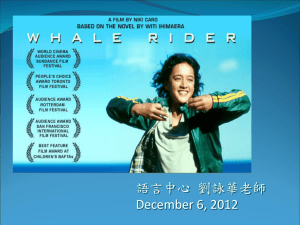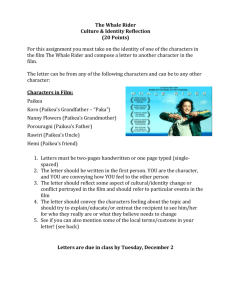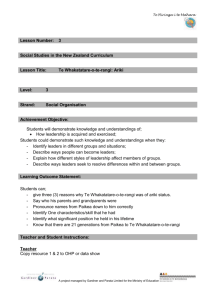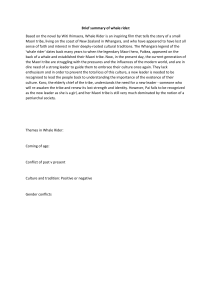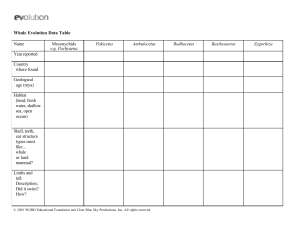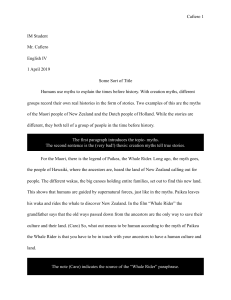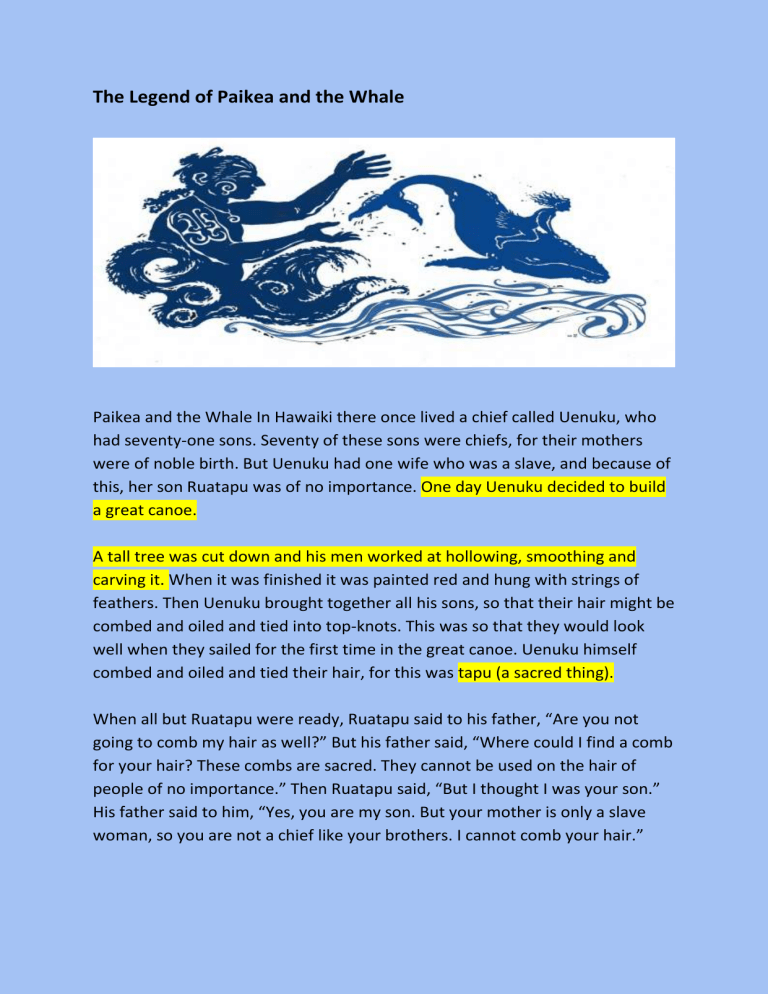
The Legend of Paikea and the Whale Paikea and the Whale In Hawaiki there once lived a chief called Uenuku, who had seventy-one sons. Seventy of these sons were chiefs, for their mothers were of noble birth. But Uenuku had one wife who was a slave, and because of this, her son Ruatapu was of no importance. One day Uenuku decided to build a great canoe. A tall tree was cut down and his men worked at hollowing, smoothing and carving it. When it was finished it was painted red and hung with strings of feathers. Then Uenuku brought together all his sons, so that their hair might be combed and oiled and tied into top-knots. This was so that they would look well when they sailed for the first time in the great canoe. Uenuku himself combed and oiled and tied their hair, for this was tapu (a sacred thing). When all but Ruatapu were ready, Ruatapu said to his father, “Are you not going to comb my hair as well?” But his father said, “Where could I find a comb for your hair? These combs are sacred. They cannot be used on the hair of people of no importance.” Then Ruatapu said, “But I thought I was your son.” His father said to him, “Yes, you are my son. But your mother is only a slave woman, so you are not a chief like your brothers. I cannot comb your hair.” Then Ruatapu was very ashamed, and ran away and planned his revenge. He went down to the canoe and cut a hole in its bottom. Then he filled the hole in again with chips of wood. In the morning they launched the beautiful canoe for the first time, and Ruatapu went with them. They paddled a long way out to sea. When they were out of sight of land, Ruatapu pushed away the chips from the hole and water rushed into the canoe. “Quickly, bail out the water, or we are lost!” his brothers yelled. But Ruatapu had hidden the bailer, and the canoe filled with water and sank. Then Ruatapu had his revenge, for all his noble brothers were drowned, except one. Ruatapu swam after his last brother, whose name was Paikea, but he could not catch him. Then Ruatapu said to Paikea, “Which one of us will carry back this news to land?” “I will,” Paikea said. “I will not drown. I am descended from Tangaroa, the god of the sea, and he will help me.” Tangaroa heard Paikea, and sent a whale to take him to land. So Paikea escaped from Ruatapu on the back of the whale. Then Ruatapu recited a magic karakia (prayer), and sent five great waves rolling across the ocean after Paikea. But Paikea was too far away, and he came to land just before the waves reached him. The waves hit the shore and bounced off again, and went back across the ocean. They rushed over Ruatapu, who was still in the sea, and Ruatapu was drowned through his own magic. But Paikea was safe. The whale brought him to the East Coast of the North Island of New Zealand and his children's children and their children still live there. The whale became an island, and you can see it there today. Language Analysis ( Unfamiliar text Practice) Remember TEE. (Technique name, Example, Explanation) when you are writing about about an Unfamiliar technique Question 1.Identify the adjective Language Effect: Explain the Feature/Sentence name effect/purpose? or example in the sentence,’One day Uenuku decided to build a great canoe’. 2. Identify the verbs in the sentence, ‘A tall tree was cut down and the men worked at hollowing, smoothing and carving it.” 3. What sort of sentence is this? ‘They paddled a long way out to sea’. 4. Name a technique used in this sentence, ‘“Quickly, bail out the water, or we are lost!” his brothers yelled.’ 5. Name another technique used in this sentence, ‘“Quickly, bail out the water, or we are lost!” his brothers yelled.’ 6. What do ‘Tapu’ and ‘Karakia’ mean? And what do you name this use of language in an Unfamiliar text answer? 7. What is the name of the language feature used in the sentence, ‘Ruatapu recited a Why are these sentences used? What is the effect? magic karakia (prayer), and sent five great waves rolling across the ocean after Paikea.’? 8. What technique is used in this sentence? ‘The whale brought him to the East Coast of the North Island of New Zealand and his children's children and their children still live there.’
